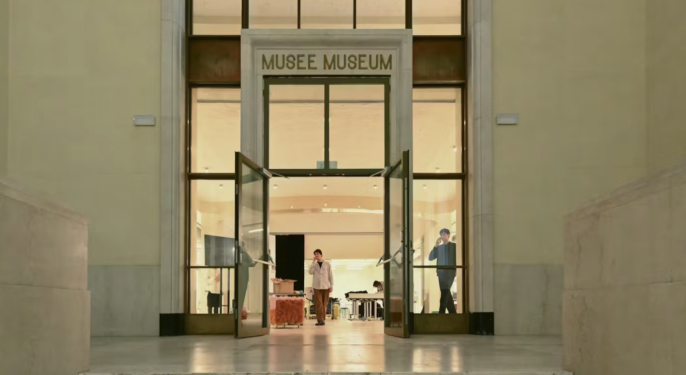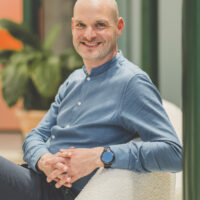Beam Book. Your space to reflect, focus and grow.
Order your copyAdvice
Masterclass: Evidence-Based HR in Practice

Critical, social and pragmatic: Evidence-Based HR in practice
Some days stay with you. The HRPro Masterclass on Evidence-Based HR, hosted at the creative venue Track Brussels on International HR Day, was such a day. This edition focused on practice: how do you actually make it work?
The event was made possible thanks to HRPro, Beam®, CEBMa, KU Leuven, Otolith® Consulting and #ZigZagHR. It was a privilege to welcome pioneers in the field and to exchange with fifty HR professionals who made the day rich in perspectives and practical insights.
Where to start?
Denise Rousseau (US, Carnegie Mellon University, CEBMa) and Eric Barends (The Netherlands, CEBMa), two of the key figures behind the development of evidence-based management, explained how.
Step one: pause. Take a step back. What is the actual problem or challenge you're trying to solve?
Then:
- Use multiple sources of evidence: scientific research, professional expertise, organizational data, and stakeholder perspectives.
- Involve stakeholders from the start, to ask better questions together and build shared ownership.
- Always consider at least two options, to avoid tunnel vision.
- Reflect outcomes: what did you expect, what did you get, and why was there a difference?
Going forward:
- Prime your thinking: read books and articles based on relevant science (not opinion). Try tools like consensus.app, an AI-powered research engine.
- Prime your social ties: connect with thoughtful practitioners who challenge your assumptions, look for expertise, and keep learning together.
Jeroen Stouten (KU Leuven, CEBMa) reminded us: experience is not the same as expertise. Twenty years in the field doesn’t necessarily mean twenty years of applicable knowledge.
Eric Barends added some insights on how to bring others along, step by step:
"It's not evidence alone that convinces. People do. Stay pragmatic and constructive. Focus on improvement, not judgment."
Critical thinking as a compass
David Ducheyne (President HRPro) opened the day with a clear call for critical thinking, echoing HRPro’s own guideline to base decisions on the best available evidence. In a world full of hypes, fake news, and AI hallucinations, HR needs people who ask better questions.
“We tend to dance around the totem pole of ideas that sound simple, plausible and new.”
Vincent Van Malderen (Poolstok) added that HR service providers also have a responsibility. Reliable middlemen don’t just follow trends; they apply evidence-based practice throughout. His reading tip: The Middleman Economy by Marina Krakovsky.
Bram Doolaege (StreetwiZe) showed how critical thinking fuels creativity. By not settling for the first solution, you leave room for new ideas to emerge. He warned against the trap of single-option focus and illustrated how evidence-based thinking helps avoid it.
The value of the informal
Delia Mensitieri (Ghent University) explained why many DEI efforts fail: because they stop at statements and quotas. She argued for measuring what really matters, redesigning systems, and engaging leaders. Small, informal signs of recognition, known as micro-affirmations, can make a significant difference in reinforcing a sense of belonging.
Shana Mertens (Open Universiteit) illustrated how informal feedback contributes to learning, not only through formal structures but in ongoing, two-way conversations. Reading tip: Her new book, HRM Theory Meets Reality (co-authored with Eveline Schollaert), bridges science and practice in HR, across both public and private organizations.
Where it comes together
Mireille Coudron (Moore Belgium) brought it all together with two practical examples. Their use of game-based assessments makes selection fairer and more inclusive. And their approach to performance approach centers on ongoing, future-focused feedback, both formal and informal, to help people grow.
Why this matters
Evidence-based HR is not a trend or a trick. It's a way of working, a way of thinking, and a way of taking responsibility for the choices we make every day.
As Denise Rousseau put it, quoting Jonathan Foster:
"If someone says it’s raining and another says it’s dry, it’s not your job to quote them both. Your job is to look out the f**ing window and find out which is true."
And the story continues
This hands-on day in Brussels followed a more academic session in Leuven, organized by Jeroen Stouten with support from UGent, VUB, and The VIGOR Unit. Two days where research, practice, and people met.
Soon, we’ll launch peer learning groups to keep learning, exchanging, and supporting each other.
Want to learn more?
Read the book Evidence-Based Management (Rousseau & Barends)
Take a look at the photo gallery to relive some of the brightest moments.
Thanks to David Ducheyne, Joris Vandersteene, Lesley Arens, Anna Dzhabroyan, and Emily Vandensteen for the teamwork that brought the day to life.



